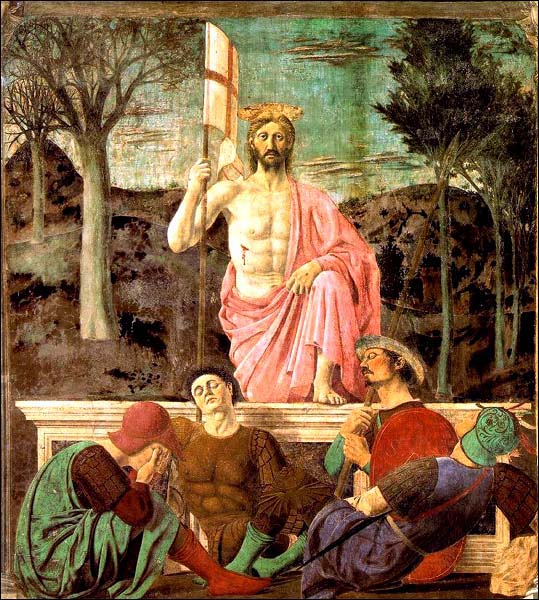Thoughts on Modernian despair on a sunny 5th Sunday of Easter
By Hilary White
So, I once read Do Androids Dream of Electric Sheep, and it was depressing. I mean, it was REALLY depressing. Maybe not quite on the level of “The Road,” but really, really, really depressing. It made me hate people, and not want to be one.
I saw the movie, of course, when it came into theatres, and at that time just kind of accepted that it was not much more than a description of how life is now. I think I saw it as simply a description of our current reality. This is what we are in.
There’s this nihilistic mindset in Modernia that makes you accept that the Blade Runner world is the world, and there’s no escape from it, and no hope… and all that.
You know the ending of the theatre-release version of BR? Where Harrison Ford does that voiceover about hope, while they’re flying out to the beautiful countryside in his flying car, and it’s all left open whether there was a happy ending? And that was as close to a happy ending as anyone could expect? I’ve read that they actually changed the ending of Blade Runner to make it less bleak, like they did with Brazil, because they didn’t want people to think there is no hope and no escape from Modernian Awful. Maybe there was a negative reaction from the test audience or something. But I think on the whole it was clear that we believe it is mostly the world of Brazil and Blade Runner that we are all living in now. This is our world. We are all trapped in it. And no, there isn’t any hope. If you think there is, you’re indulging in a fantasy.
So, it’s there, isn’t it, that bleak no-hope ending. It’s there and really I think it’s the driving assumption of our Modernian reality. We all think that this particular kind of horror – the kind that makes you want to give up hope, that makes you believe giving up hope is the most sensible and sane option – is what’s real, or at least we suspect it might be. Or, maybe simply that it’s the safe bet.
It took a long time and a lot of effort to shake that off, a lot of mental discipline to retrain my brain – that I wasn’t really trained to have… and so I’m still not very adept at it. Modernian Despair is always there on the outside of my mental perimeter fence, stalking patiently back and forth, waiting for an opening, a moment of weakness, to get back in. There’s my internal war in a nutshell.
I think this kind of movie – this kind of proposal for our future – this nihilistic, Philip K. Dick, Gibsonian, Modernian Despair – should really be classified as a new kind of horror. Make films about it and call the genre something like “nietzschean despair horror” or “existential despair-horror,” because it is a kind of horror. Fewer jump-scares, I guess, but more overall fear.
It’s the kind of future people of my generation and demographic were raised to expect – no good choices. And this is our internal war, the one always going on between the ribs and between the ears of many modern people raised in the secular environment. We were taught as children that we were all either going to be blown up – incinerated or vaporized by distant and uncaring governments – or our lives were going to be reduced to a struggle for bare existence a la Blade Runner, Soylent Green, etc. After an upbringing like that, you learn to shut off your instinct for hope. Hope for the future becomes your worst enemy.
So, Christian hope is something new to us, and we have come to instinctively regard it as something rather dangerous. It’s such an implausible and outlandish proposition, one that all our training all our lives has been to reject, because to believe in such an astoundingly improbably happy outcome seems like a trap to us. One only a fool would walk into.
Pastorally speaking, I think this is what many in the priesthood – and the “helping professions” in general – don’t understand about this generation. We are the ones who were taught that hope for the future, belief in a happy ending, is a mugg’s game.
Declare it with the voice of joy, and
make it known, alleluia:
declare it even to the ends of the earth:
The Lord hath delivered His people,
alleluia, alleluia.
(Ps. 65: 1,2) Shout with joy to God, all
the earth, sing ye a psalm to His name:
give glory to His praise.
v. Glory be to the Father, and to the Son, and
to the Holy Spirit, as it was in the
beginning, is now, and ever shall be,
world without end. Amen.
Declare it with the voice of joy, and make it
known, alleluia: declare it even to the
ends of the earth:
The Lord hath
delivered His people,
alleluia, alleluia
~
